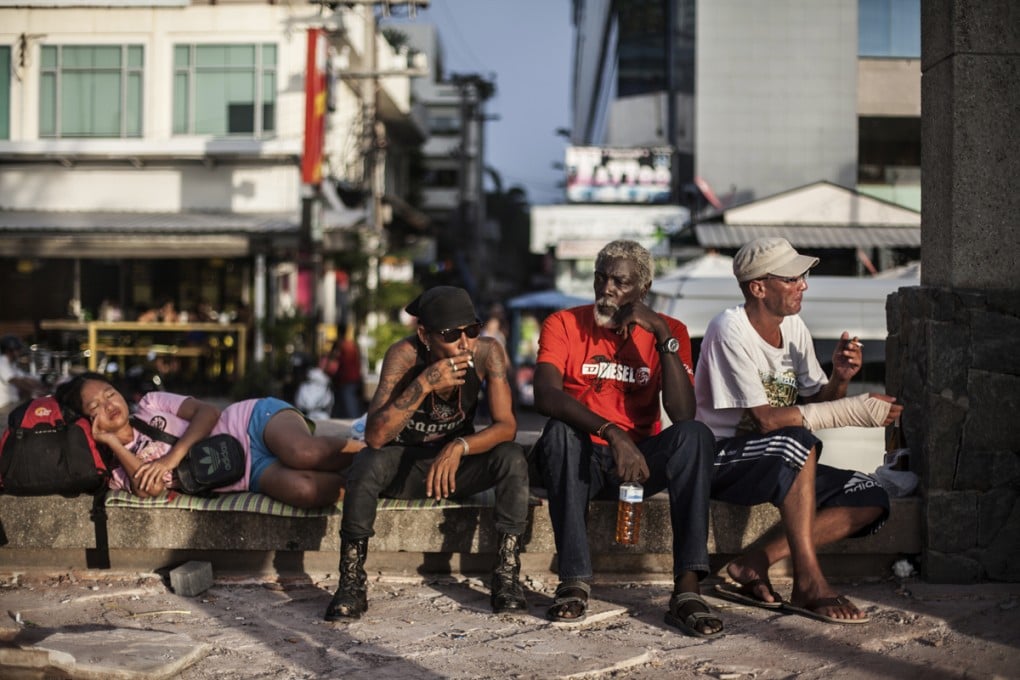Far from home
Largely abandoned by their own countries and ignored by the locals, the Westerners living on the streets of Pattaya are nevertheless reluctant to leave, writes Carol Isoux. Pictures by Guillem Valle

“In a year, I spent 1.5 million baht [HK$365,000] on booze and girls … believe me, I had fun,” says Steve, an Englishman from Manchester who will soon be celebrating his 60th birthday on Jomtien Beach, near Pattaya, in Thailand. The birthday bash will not be a lavish affair, however, and he hasn’t had much choice in the location; it’s where he has been living for the past few years.
Steve, who like most of the men interviewed for this article has requested that his family name not be published, is one of a growing number of Westerners who have found themselves down and out in Thailand. Many came with their life savings, intending to invest in a small business to finance a comfortable retirement in the Land of Smiles. Drawn into a lifestyle of endless parties, sex and alcohol, however, they gradually lost everything they had.
Today they survive on the streets, their visas having expired, relying on the generosity of locals.
“I had come here before several times for holidays, and I loved it,” says Steve, “so I quit my job, my family, and came with this money to make an investment for my old days and live here.”
Marvelling at the freedom he found in this “Disneyland for old men” – where alcohol, drugs and pretty girls are all readily available – Steve started spending more than he could afford.
“I could pick up two, three girls on the same day … Every go-go girl in the city knew me, I felt like a movie star,” he says.
A decent hotel room in Pattaya costs about HK$15,000 a month while HK$400 will buy you a bottle of whiskey or vodka in a nightclub, or a girl for the night. Prices are cheap by European standards.